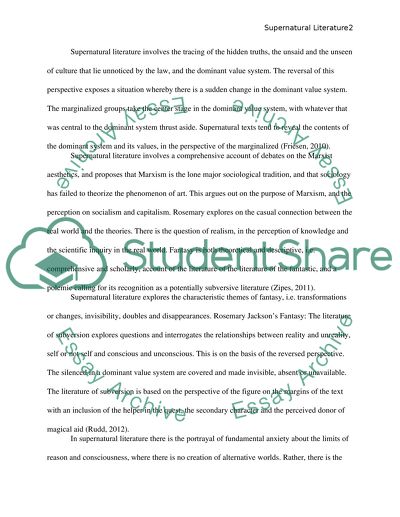Cite this document
(“Supernatural literature Essay Example | Topics and Well Written Essays - 2000 words - 1”, n.d.)
Retrieved from https://studentshare.org/english/1621950-supernatural-literature
Retrieved from https://studentshare.org/english/1621950-supernatural-literature
(Supernatural Literature Essay Example | Topics and Well Written Essays - 2000 Words - 1)
https://studentshare.org/english/1621950-supernatural-literature.
https://studentshare.org/english/1621950-supernatural-literature.
“Supernatural Literature Essay Example | Topics and Well Written Essays - 2000 Words - 1”, n.d. https://studentshare.org/english/1621950-supernatural-literature.


